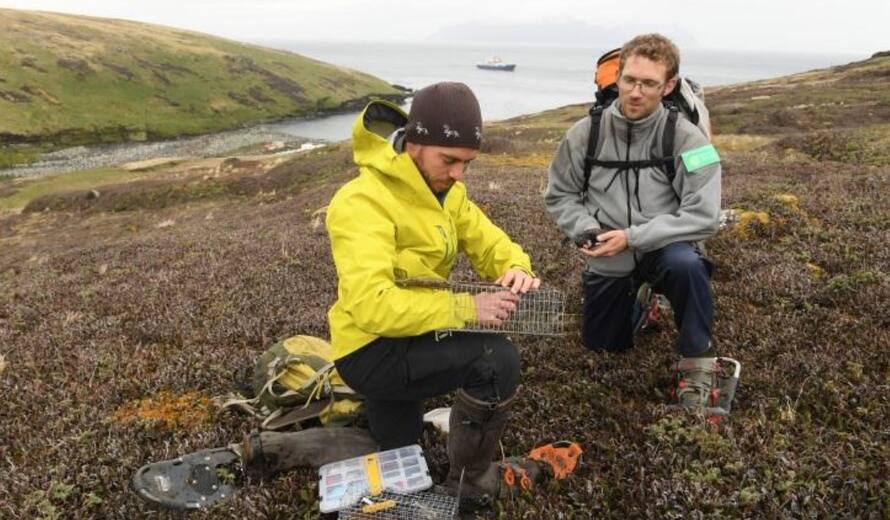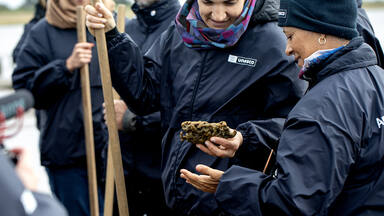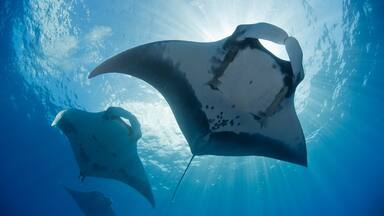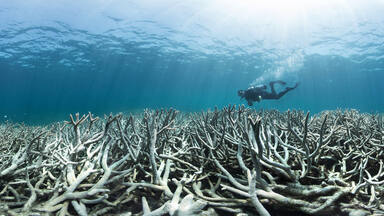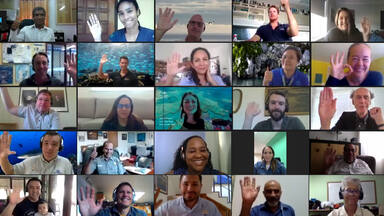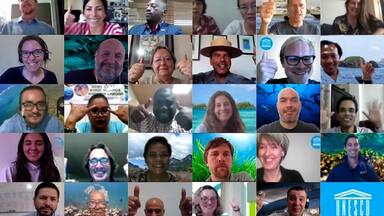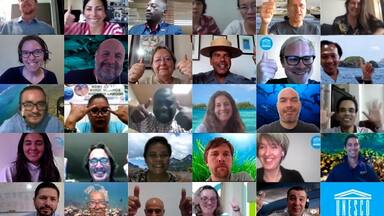Online Meeting: How to manage invasive alien species at marine World Heritage sites?
According to the latest IUCN World Heritage Outlook, 75 percent of the 50 UNESCO marine World Heritage sites are threatened by invasive alien species.
This month's online meeting with marine World Heritage managers will highlight the latest innovations in prevention and eradication of invasive alien species.
Invasive alien species often result in drastic habitat changes and reduced biological diversity, with potentially significant impacts on marine sites’ Outstanding Universal Value. Many World Heritage sites have therefore set up state-of-the art biosecurity protocols to prevent the introduction of invasive species, or launched complex eradication campaigns.
On 20 May, the World Heritage marine managers’ Online Meeting will feature Professor James Russell (University of Auckland) and Dr Nick Holmes (The Nature Conservancy) who will share best practices from successful eradications from World Heritage marine sites across the world. Managers from Galápagos Islands (Ecuador) and the French Austral Lands and Seas (France) will share practical lessons learned from their successful on-site eradication and biosecurity operations.
Every two months, UNESCO's World Heritage Marine Programme provides an exclusive online platform where managers from the 50 marine World Heritage sites connect and share practical successes in tackling key conservation challenges.
Due to their status as the world’s flagship marine protected areas, marine World Heritage sites are uniquely positioned to drive change and innovation, set new global standards in conservation excellence, and serve as beacons of hope in a changing ocean. The online meetings are made possible thanks to the support of the French Biodiversity Agency and the Great Barrier Reef Foundation. Participation is upon invitation only.
world heritage, marine world heritage, ocean, invasive species, biodiversity, eradication
